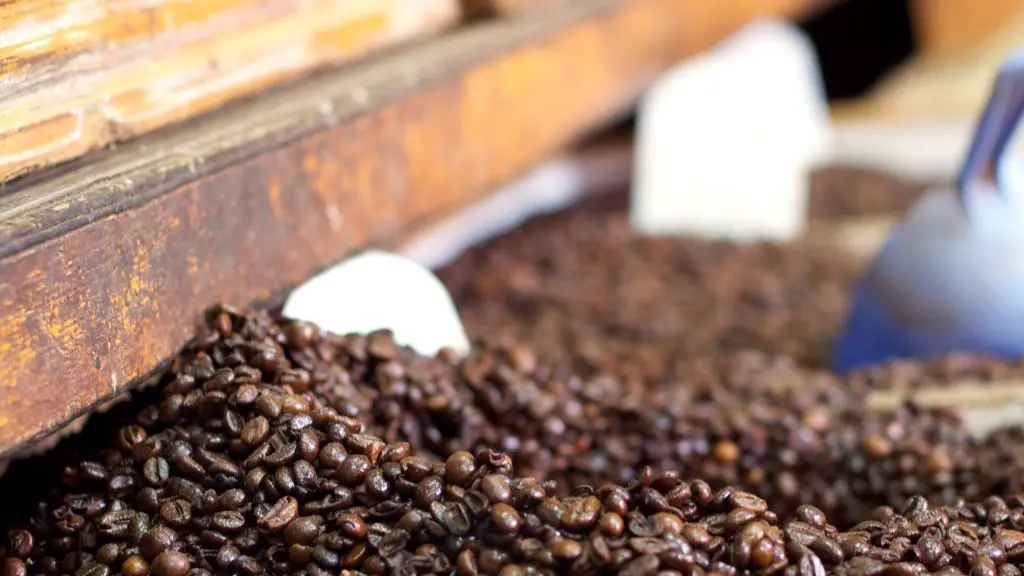Is it OK to Drink Coffee While You’re Pregnant?
When you’re expecting, you may want energy and to feel great while you’re carrying your baby. Coffee may be an appealing solution. That said, there may be risks involved with sipping java while you’re pregnant.
Caffeine is a central nervous system stimulant and is the world’s most popular drug. Throughout your pregnancy, everything you eat, drink or take can affect your baby. Specialists say there may be benefits and risks linked to drinking coffee while pregnant.
Obstetricians generally advise that pregnant women adhere to a limit of 200 mg of caffeine per day. The U.S. National Library of Medicine states that the amount of caffeine in eight ounces of coffee is 95 to 200 mg. A pregnant woman should consult her health care provider regarding how much caffeine is appropriate.
Women who drink moderate amounts of coffee during pregnancy may have improved fetal growth and a decreased risk of preterm birth, according to a review published in Research Issues in Clinical and Community Psychology in 2012. There may be, however, an increased risk of miscarriage in certain cases.
High doses of caffeine can be harmful, especially toward the end of pregnancy. As your baby grows and undergoes rapid development, your body may be more sensitive to caffeine’s effects. Caffeine, during pregnancy, have been linked to having a low birth weight baby and to having a higher risk of stillbirth.
For this reason, it’s important to be aware of where you’re getting your caffeine from. Caffeine can be found in more than just coffee. In addition to coffee, tea, some soft and energy drinks, chocolate, and certain medications contain caffeine. Some herbal teas can contain caffeine as well, and always check nutrition labels for caffeine amounts.
Health care providers may recommend other beverages, in place of coffee, while pregnant. Fluids such as water, smoothies, juice, or decaffeinated coffee, may be safely consumed.
Knowing what you’re consuming while pregnant is essential. Check labels, and talk to your doctor. The amount of caffeine you’re drinking is important as well. Reducing or eliminating caffeine while pregnant is a possible step to take, in order to reduce the potential risk of harm.
Risks of Consuming Coffee While Pregnant
Pregnant women are advised against consuming high levels of caffeine as it can be risky for the baby. High doses of caffeine have been associated with low birth weight, however, the research on the subject is inconclusive.
A study published in Plos One concluded that pregnant women having more than 200 milligrams of caffeine a day from all sources are more likely to give birth to babies with lower birth weights. It can also lead to increased risk of other maternal and fetal complications, and miscarriage.
The American College of Obstetricians and Gynecologists and the US National Library of Medicine state that caffeine can cross the placenta, where it can influence fetal heart rate. Caffeine can also increase your baby’s risk of future heart disease, attention deficit hyperactivity disorder, anxiety and depression when the baby reaches adulthood.
Drinking large amounts of coffee during pregnancy can also cause dehydration. Caffeine is a diuretic, which means it speeds up the removal of water from the body. This is because of the mild dehydration it causes, caffeine may affect your baby’s blood flow and keep him or her from getting the nourishment they need.
Benefits of Drinking Coffee While Pregnant
Studies have shown that there can be some benefits when drinking small amounts of coffee while pregnant. Moderate amounts of coffee, one to two cups of coffee per day, have been linked to improved fetal growth, lower risk of preterm birth, and was linked to higher birthweight.
Research published in BMC Pregnancy and Childbirth concluded that pregnant women who drank moderate amounts of coffee had a decreased risk of delivering a baby of low-medium birth weight. Pregnant women who drank between 200 milligrams to 300 milligrams of caffeine daily also had a reduced risk of delivering a baby with low birth weight.
In some cases, consumption of coffee in moderation can reduce the risk of preeclampsia. Preeclampsia is characterized by elevated blood pressure and protein in the urine after the 20th week of pregnancy. A study in the Journal of Epidemiology & Community Health showed that pregnant women who drank up to 200 milligrams of caffeine daily had a decreased risk of preeclampsia.
Caffeine can also boost your energy level and help to alleviate fatigue during pregnancy, as well as help to reduce headaches, which pregnant women may suffer, due to hormonal changes. Drinking up to one or two cups per day may help prevent headaches, but it is important to remain within the limits advised by your health care provider.
When to Cut Back on Caffeine During Pregnancy
If you’re finding it difficult to stay within the recommended limits of 200 mg of caffeine per day, it’s best to cut back when pregnant. If you’re having multiple cups of coffee, caffeine-rich tea, caffeine-rich soda drinks, chocolate, certain energy drinks and certain medications, it’s safer to go without. It is important to ask your doctor, midwife or nutritionist what is best for you as an individual.
Cutting back can be done gradually, and giving up caffeine completely is possible. There are various decaffeinated options available, as well as caffeine free alternatives such as teas, herbal teas and decaffeinated coffee.
If you’re looking for an energy boost you can try fertility friendly nutrition. Eating small meals throughout the day and focusing on a balanced diet can keep your energy levels up, help with tiredness and provide your body with key nutrients to help keep you and your baby healthy.
What Other Beverages Can I Drink While Pregnant?
Overall, water is the healthiest beverage for pregnant women as it helps keep you hydrated and it doesn’t contain any calorie or sugar. Some other fluids you can safely consume while pregnant, are smoothies and juices that are freshly made and are preferably homemade, as well as decaffeinated coffee. Soups, milkshakes and hot chocolate may also be consumed.
Ditch the coffee, tea and soda drinks and instead opt to drink herbal teas, in particular peppermint tea, ginger tea and chamomile tea. Consumption of these herbal teas may help alleviate fatigue, nausea and morning sickness.
The botanicals in herbal teas contain naturally occurring compounds that may boost your body’s ability to resist disease and balance hormones. Make sure to select respectable brands of herbal teas, as some brands may have added caffeine to their teas.
Caffeinated Beverages to Avoid During Pregnancy
If you plan to consume caffeine, it’s important to note the sources. One cup of coffee is equal to about 95 to 200 milligrams of caffeine, depending on its strength. It is also important to know that certain tea products such as green tea or black tea may contain a high amount of caffeine.
In addition to coffee and tea, keep in mind that certain soft drinks, energy drinks and chocolate may also contain high levels of caffeine. It’s worth mentioning that caffeine is also found in certain medications, including those available over the counter.
Conclusion
It’s important to note that it is your responsibility to decide on the amount of coffee to drink while pregnant. While research suggests that moderate amounts of coffee may benefit pregnant women and their babies, it’s best to stay within the limits advised by your health care provider. Reduce or eliminate your caffeine intake and make sure to check labels for caffeine amounts.





